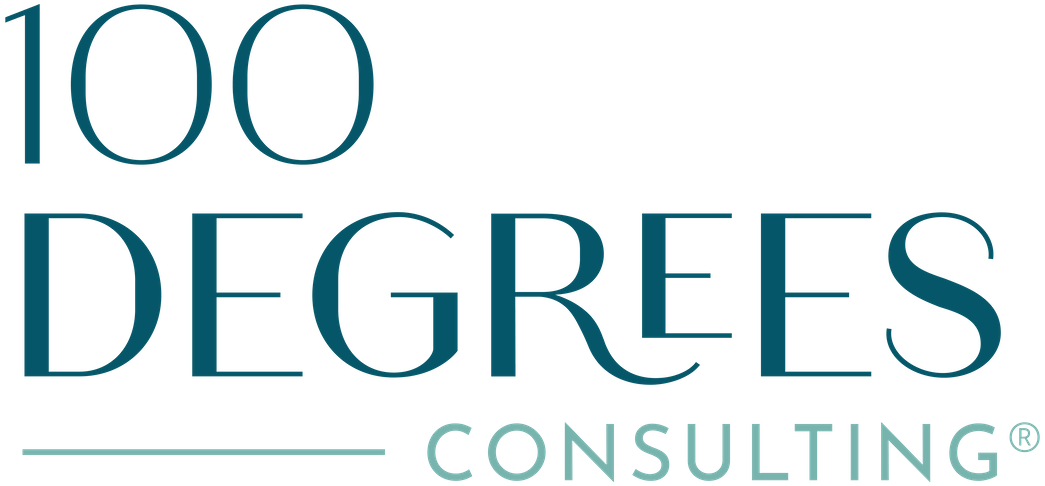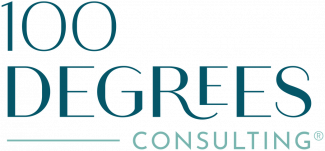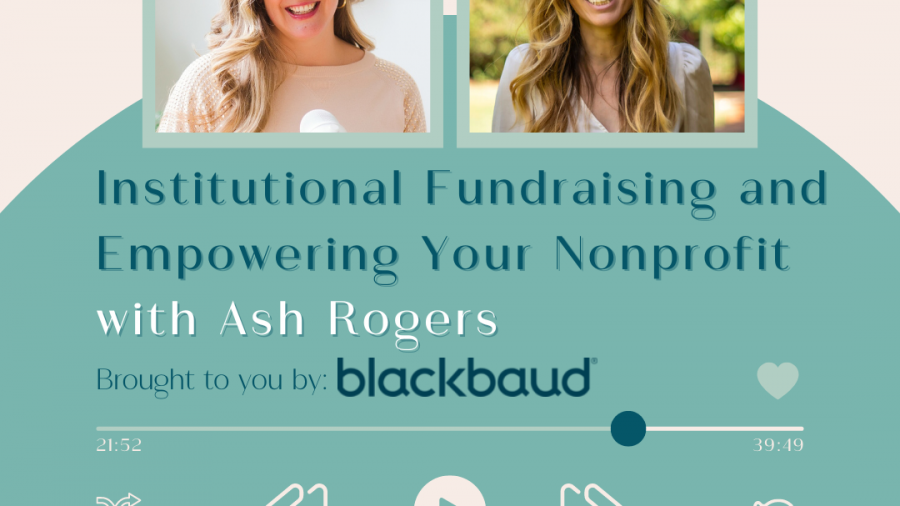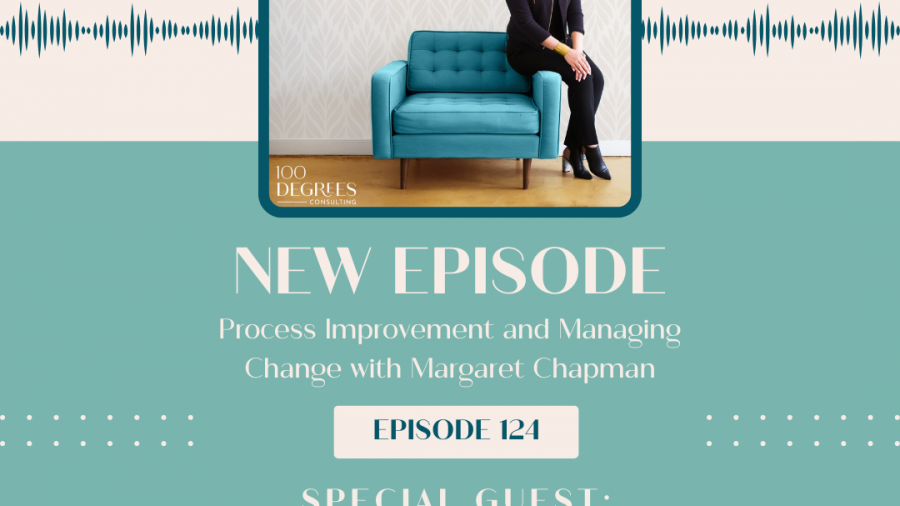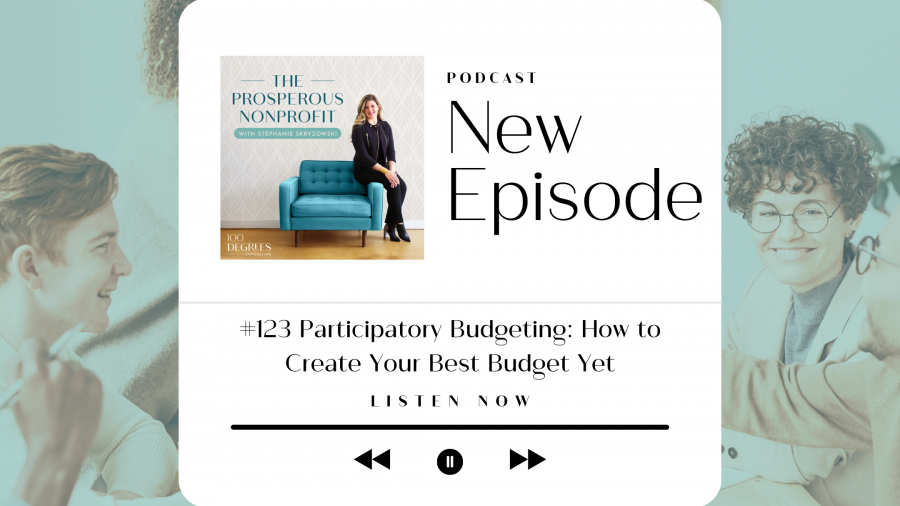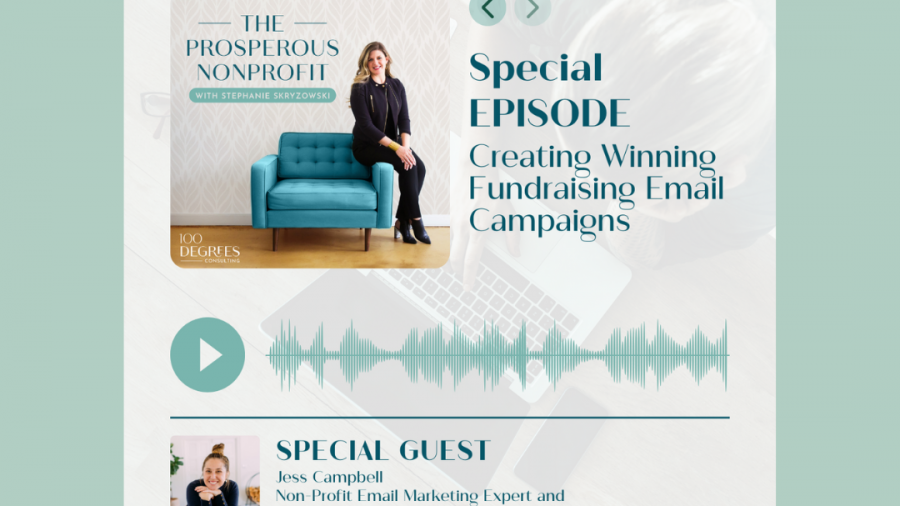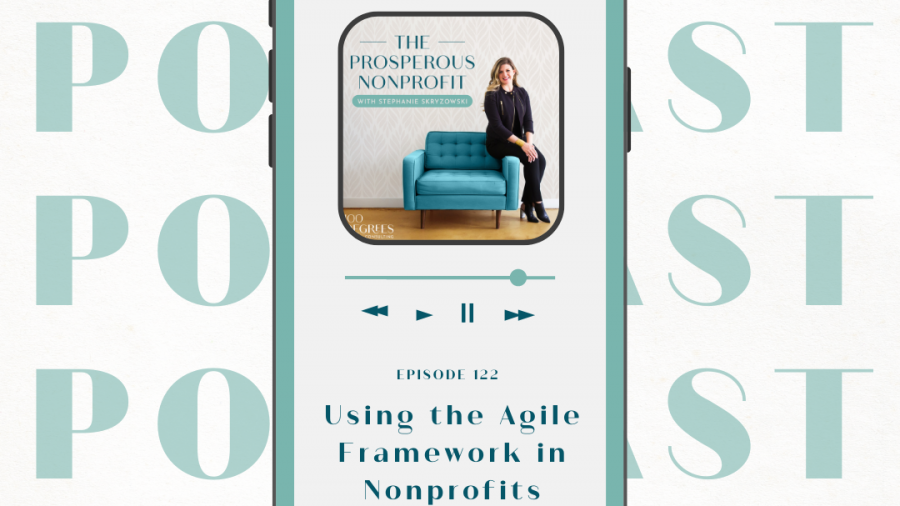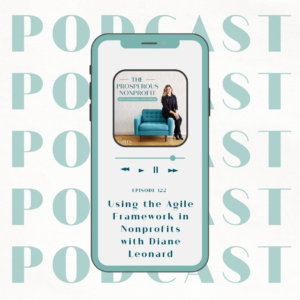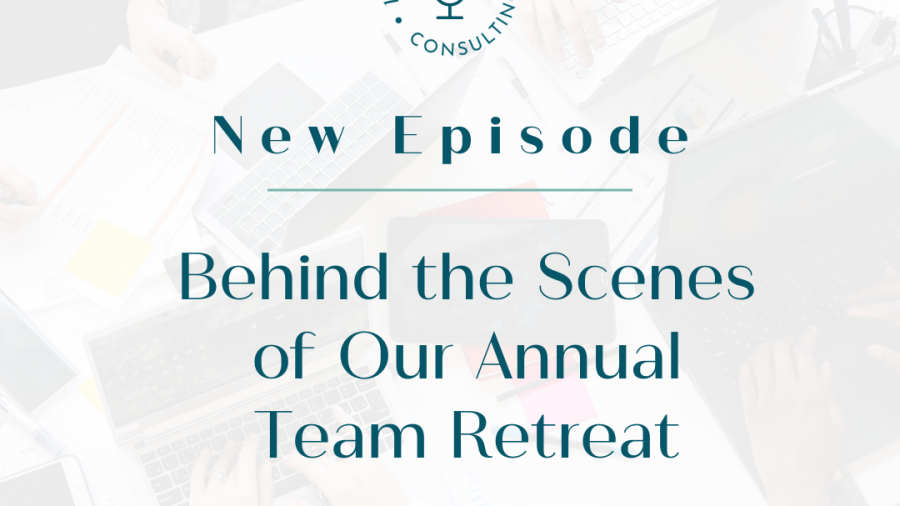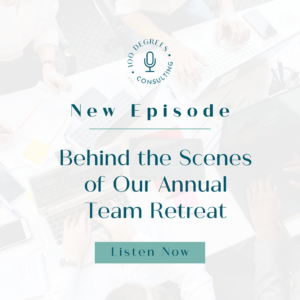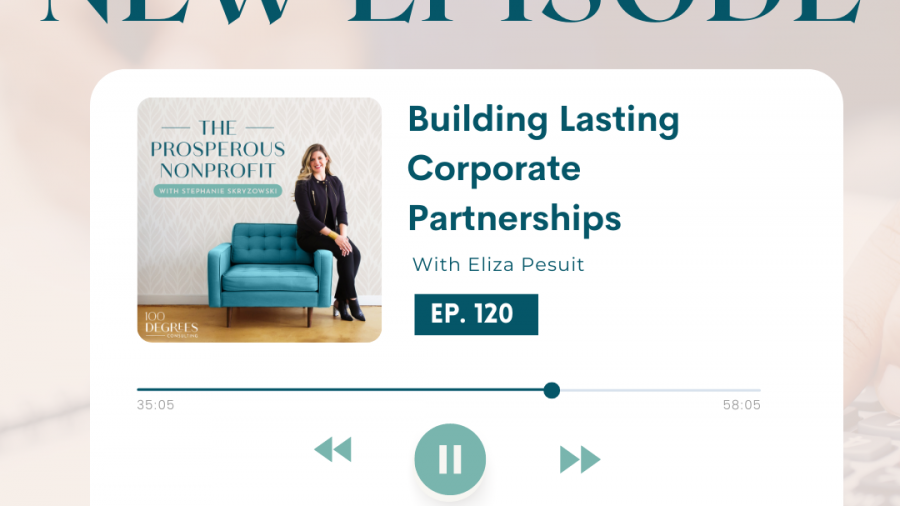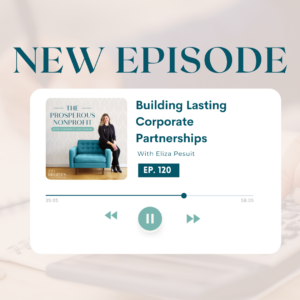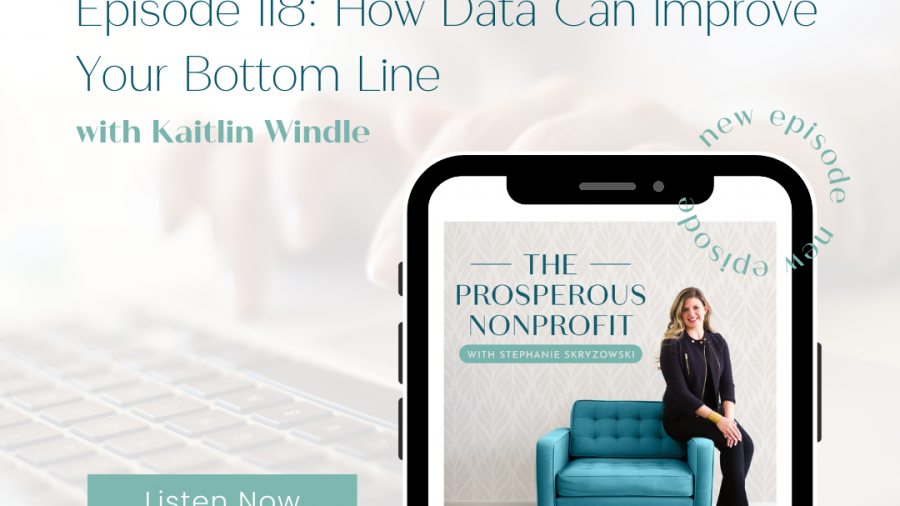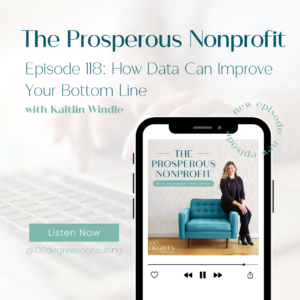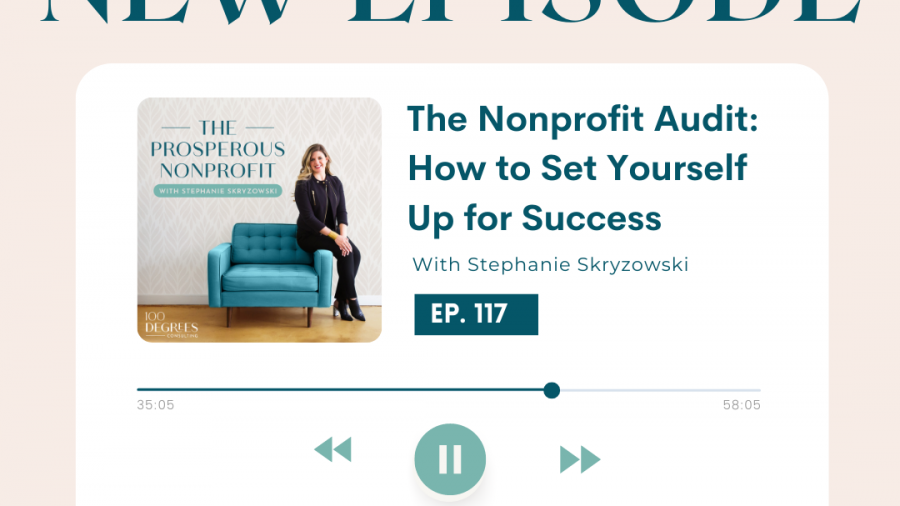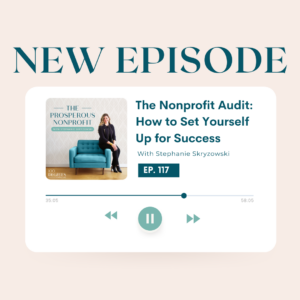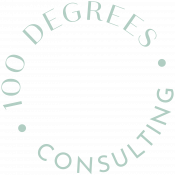Is your nonprofit achieving its institutional fundraising goals? What about empowering team members through its leadership structure? Did you know these things can actually go hand in hand? We are so excited for today’s episode with Ash Rogers, where she dives into institutional fundraising and decolonized leadership structure and talks about tons of practical tips and strategies.
She tells us how she helped to transform her organization’s leadership structure into a decolonized model, how this benefits and empowers team members, as well as challenges many organizations need to overcome. Ash discusses just how this decolonized structure has helped empower her organization across several areas, including fundraising.
We dive into institutional fundraising and the impact it has on nonprofits. Ash gives us strategies for attracting these large donors, as well as how to push back, handle disagreements with funders, and even say no to bad money. She also speaks to the importance of long-term strategic planning and how she and her co-CEO work together to achieve the organization’s goals.
About Ash
Ash Rogers is Co-Chief Executive Officer of Lwala Community Alliance. Lwala matches community-led change with university-backed research and evaluation to advance quality health for all. Ash has overseen a 14-fold increase in annual revenue, exponential reach of the model, increased diversity in board membership, and publication of many peer-reviewed studies.
Prior to Lwala, Ash was the Director of Operations at Segal Family Foundation, overseeing a $12m portfolio of 180 grantees. Ash is a Global Health Corps alum and has worked with organizations including Komo Learning Centres and HELP International. Ash serves as a board member of the Community Health Impact Coalition, Orkeeswa School and Komo Learning Centres. The through line of Ash’s work is shifting power and money so that local leaders go from local impact to system-level change. Ash holds a Master of Public Administration from the University of Washington and a BA in Political Science from Brigham Young University.
Read the podcast transcript here.
Episode Summary
On today’s episode, you’ll learn how you can boost your organization’s institutional fundraising and empower your leadership team including:
•How Ash helped restructure Lwala’s leadership structure (7:00)
•What a decolonized leadership model looks like (8:30)
•Benefits and challenges of a decolonized leadership structure (11:30)
•Developing a fundraising strategy as a co-CEO (13:55)
•One of the best tactical ways to find funders (17:10)
•Strategies for attracting large donors (20:00)
•How to handle disagreements with funders (21:50)
•Saying no to bad money (26:00)
•Overcoming challenges of transformational giving (28:10)
•Long-term strategic planning for fundraising (31:30)
Teasers
“Everything’s a co-decision. That sounds real tough. I feel like the best analogy is a marriage where you have some separate responsibilities.”
“I think funders also are people who often deeply care about this work and have their own technical knowledge and experience and they want to engage in real conversations.”
“I think it’s really important to be able to engage with people, to tell them when you disagree, to have debates with them about real ideas. I think people can feel the authenticity of that.”
“You need to have your own kind of boundaries and parameters about the money that you’ll take.”
“It doesn’t have to be expensive and detailed and cumbersome to be able to put together this big vision that then you can share that can help advance your fundraising and your revenue generation, conversations, and activities.”
Huge thank you to our sponsor!
This series is sponsored by Blackbaud, the essential software provider for the organizations and people who change the world. Blackbaud has been working with finance professionals at nonprofit and social good organizations for almost 40 years with its Blackbaud Financial Edge, NXT Fund, accounting software expertise, and services. You can streamline your financial operations, strengthen your accountability, and make data-driven decisions to increase your impact. To learn more, visit https://www.blackbaud.com/
Resources
•Connect with Ash on LinkedIn: https://www.linkedin.com/in/asrogers/
•Check out Lwala’s website: https://lwala.org/
•Blackbaud Nonprofit Accounting Software: https://www.blackbaud.com/
•Keep up to date with the podcast: @100degreesconsulting
•Follow Stephanie on Instagram: @stephanie.skry/
•Connect with Stephanie on LinkedIn: https://www.linkedin.com/in/stephanieskryzowski/
•Visit the podcast page: https://100degreesconsulting.com/institutional-fundraising
Want more of the podcast?
New episodes are released weekly! Find them all plus show notes and exclusive bonus content at 100degreesconsulting.com/podcast. Leave us a review! Click here, scroll to the bottom, tap to rate with five stars, and select “Write a Review.” Let me know what you loved most!
